I did thorough research to understand the better side of storytelling through writing.
In this article, I will share a compilation of the popular and best books on writing to enhance your writing skills and wake you from the inside as a ruthless writer.
From timeless classics to modern gems, these books offer invaluable advice, practical tips, and profound insights to ignite your imagination.
10+ Best Books on Writing
Here is the list of the best popular books that you can find both online and offline to read to hone your grammar and writing skills.
1. On Writing by Stephen King
On Writing by Stephen King is an insightful exploration of his own writing journey and has a craft of storytelling. King provides a candid account of his life, sharing personal anecdotes and experiences that have shaped his writing style. He emphasizes the importance of discipline, persistence, and finding one’s authentic voice.
Throughout the book, King offers practical advice on various aspects of writing, from developing characters and creating compelling plots to editing and revising. He emphasizes the significance of reading extensively to become a better writer and advocates for a balance between writing as a passion and treating it as a profession.
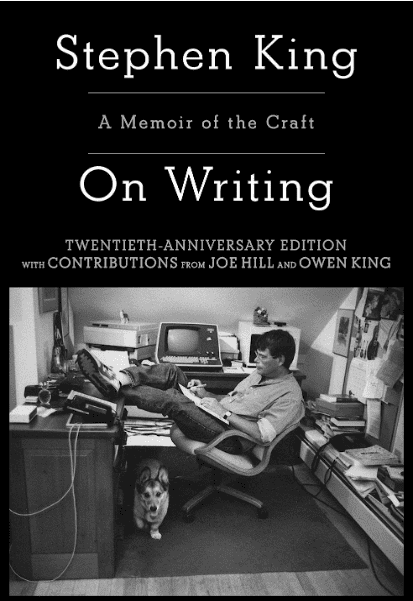
King’s book is a treasure trove of wisdom, blending memoir and instructional guide seamlessly. It serves as a source of inspiration for aspiring writers, showcasing that even the most successful authors have faced obstacles and self-doubt on their writing journey.
“If you want to be a writer, you must do two things above all others: read a lot and write a lot.“
2. Bird by Bird by Anne Lamott
The next book on the list is Anne Lamott’s “Bird by Bird” which is a delightful and humorous guide for aspiring writers. Lamott’s approach to writing is refreshingly honest and relatable, providing a reassuring voice for those struggling with the creative process.
The book’s title was taken from annes’s childhood anecdote where Lamott’s father taught her brother to tackle overwhelming tasks by taking them “bird by bird.” This analogy forms the foundation of Lamott’s advice, encouraging writers to break down their writing into manageable pieces and focus on the present moment.
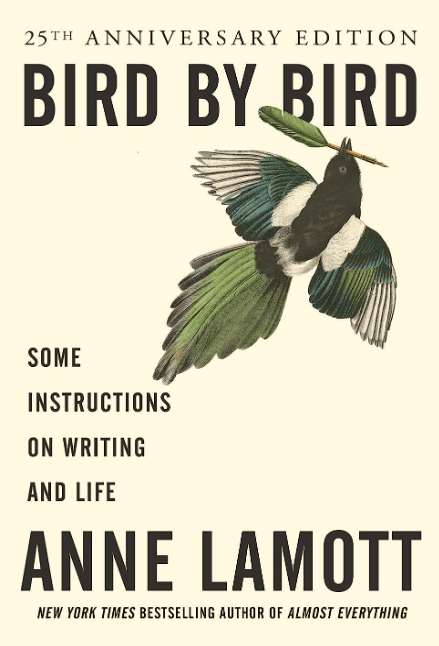
Lamott delves into various aspects of writing, such as character development, plot structure, and finding one’s unique voice. She also explores the emotional challenges writers face, including self-doubt and the fear of failure. Through personal stories and anecdotes, Lamott offers comfort and encouragement, reminding writers that imperfection is a natural part of the creative process.
“Writing and reading decrease our sense of isolation. They deepen and widen and expand our sense of life: they feed the soul.“
3. The Elements of Style by E.B. White and William Strunk Jr.
“The Elements of Style” is a timeless guidebook for you (writers), focusing on the principles of effective writing and communication. This concise yet comprehensive book covers grammar, punctuation, style, and composition.
Strunk and White emphasize the importance of clarity, conciseness, and simplicity in writing. They provide practical rules and guidelines to you for improving sentence structure, word choice, and overall writing quality. The book also offers you guidance on common mistakes to avoid and tips for achieving a polished writing style.
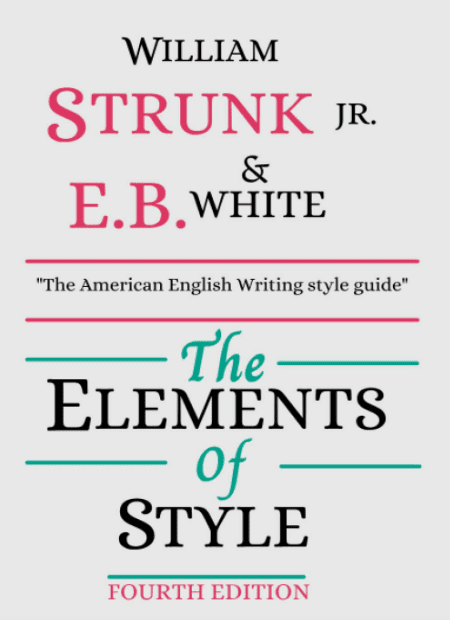
The book serves as a trusted reference for writers like you across different fields, including students, professionals, and anyone looking to improve their writing skills. Its straightforward and practical approach has made it a staple in writing courses and a go-to resource for writers of all levels.
“Omit needless words.“
4. On Writing Well by William Zinsser
This book is a comprehensive guidebook for you to improve your nonfiction writing skills. Zinsser emphasizes the importance of simplicity, clarity, and empathy in crafting engaging and impactful prose.
The book covers various forms of nonfiction writing, including memoirs, travel writing, science writing, and more. Zinsser explores techniques for capturing the reader’s attention, organizing ideas effectively, and developing a distinct writing style.
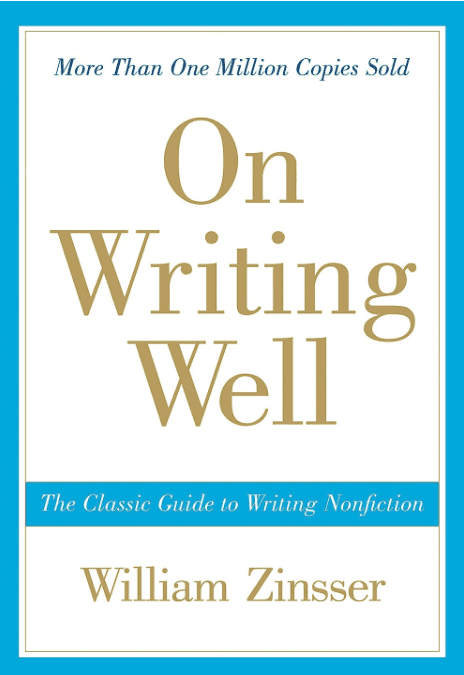
Zinsser also addresses common pitfalls and challenges faced by nonfiction writers, such as jargon, excessive wordiness, and lack of focus. He encourages writers to be authentic, to find their unique voice, and to cultivate curiosity in their subject matter.
The book has become a classic in the realm of nonfiction writing guides, providing practical advice and timeless wisdom for writers across disciplines.
“Good writing does not succeed or fail on the strength of its ability to persuade. It succeeds or fails on the strength of its ability to engage you, to make you think, to give you a glimpse into someone else’s head.“
5. Steering the Craft by Ursula K. Le Guin
“Steering the Craft” is a valuable resource of writing if you are seeking to improve your storytelling skills. Le Guin, a master of fantasy and science fiction has shared her insights into the art of writing and the intricacies of crafting compelling narratives.
In this book, Le Guin explores the fundamentals of storytelling, including the use of language, point of view, and narrative structure. She provides writing exercises and examples to help writers hone their skills and better understand the craft.
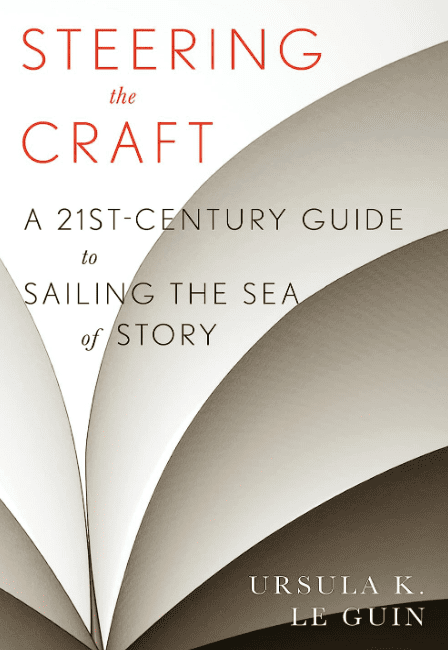
Le Guin’s approach to writing is rooted in exploration and experimentation. She encourages you to take risks, embrace the unknown, and challenge traditional storytelling conventions. Her guide will empower you to navigate through a vast sea of storytelling with confidence and creativity.
“The story-maker proves a successful ‘sub-creator’. He makes a Secondary World which your mind can enter. Inside it, what he relates is ‘true’: it accords with the laws of that world. You therefore believe it, while you are, as it were, inside.“
6. The Writing Life by Annie Dillard
Annie Dillard’s “The Writing Life” is a poetic exploration of the joys and struggles of the writing journey. Dillard reflects on her own writing experiences, delving into the complexities and sacrifices inherent in the creative process.
The book captures the dedication and discipline required for you to be a writer. Dillard explores the challenges of finding inspiration, overcoming writer’s block, and maintaining a sense of purpose in the face of setbacks. She portrays writing as a labor of love that demands perseverance and resilience.
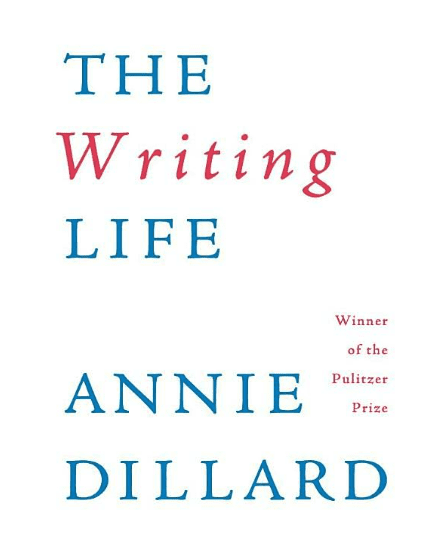
Through lyrical prose and vivid imagery, Dillard will immerse you in the world of writing, highlighting the profound impact it can have on your life. The book serves as a reminder that writing is not just a vocation but a way of being and that the writer’s journey is as important as the destination.
“How we spend our days is, of course, how we spend our lives.“
7. Zen in the Art of Writing by Ray Bradbury
In “Zen in the Art of Writing,” the author shares his insights into the creative process and the joy of writing. Bradbury’s enthusiasm and love for storytelling shine through as he encourages you as a writer to embrace your imagination and passion.
The book is a collection of essays where Bradbury discusses various aspects of writing, including finding inspiration, generating ideas, and developing a writing routine. He emphasizes the importance of writing with joy and enthusiasm, seeing it as a form of self-expression and exploration.
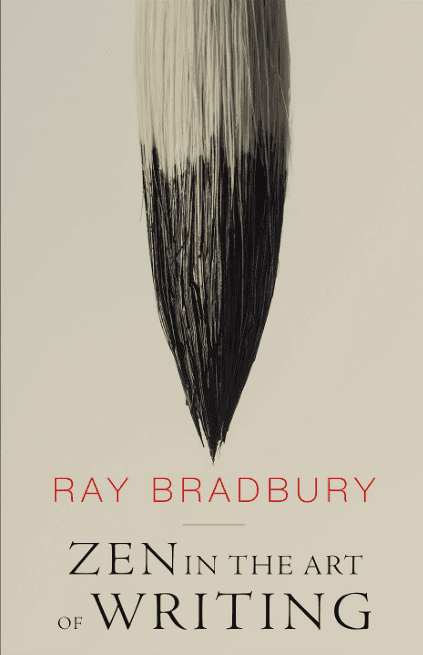
Bradbury’s unique perspective blends elements of spirituality, imagination, and discipline. He encourages you to trust your instincts, follow their passions, and write with a sense of wonder and curiosity. It is a celebration of the creative spirit and a reminder that writing is a joyful journey.
“Every morning, I jump out of bed and step on a landmine. The landmine is me.“
8. Big Magic by Elizabeth Gilbert
This book by Elizabeth Gilbert explores the realms of creativity, inspiration, and the challenges you face as an artist in pursuing passions. Gilbert encourages you to embrace your creative instincts and live a life driven by curiosity and imagination.
In this book, Gilbert shares personal stories and insights, highlighting the importance of embracing creativity without fear or self-doubt. She challenges the notion of suffering for art and advocates for a more joyful and liberated approach to creative pursuits.
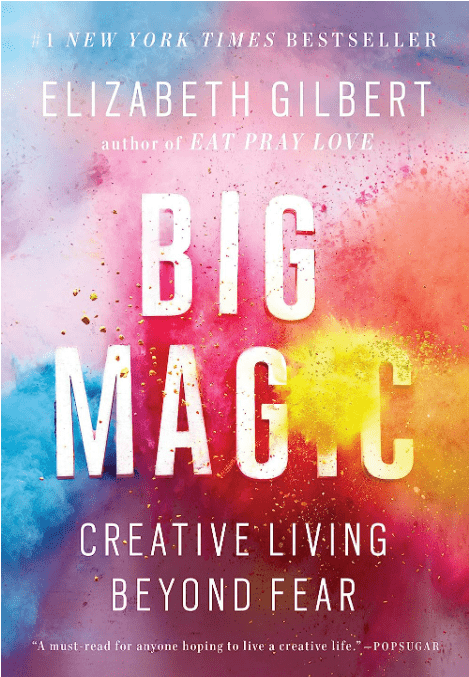
This book offers practical advice and encouragement to overcome creative obstacles, embrace failure as a stepping stone to success, and find inspiration in unexpected places. Gilbert’s uplifting and empowering voice has inspired readers and will inspire you to live a life fueled by creativity and to pursue your artistic dreams.
“Do whatever brings you to life, then. Follow your own fascinations, obsessions, and compulsions. Trust them. Create whatever causes a revolution in your heart.“
9. The War of Art by Steven Pressfield
“The War of Art” by Steven Pressfield is a powerful exploration of the creative process and the resistance faced by every artist. Pressfield examines the inner battles that hinder creative endeavors, such as self-doubt, procrastination, and fear of failure.
Pressfield’s book serves as a wake-up call, urging you to recognize and overcome the forces of resistance that prevent from reaching your creative potential. He offers strategies and insights for combating resistance and developing a disciplined mindset.
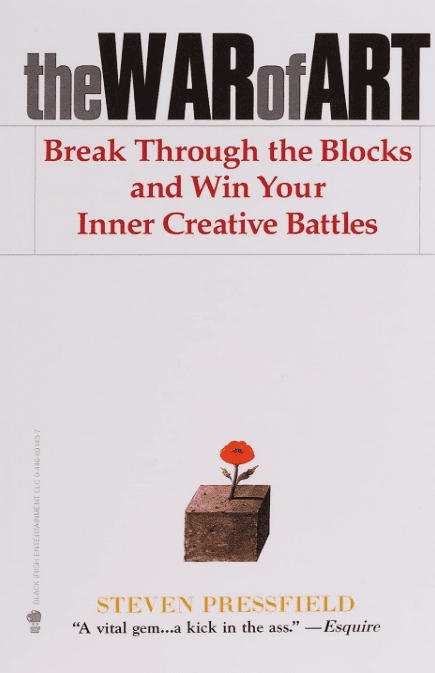
The book encourages you to approach your craft with professionalism, dedication, and a willingness to embrace the challenges that come with it. This book has empowered artists to confront their inner obstacles and commit to their creative journey. Hence, it should empower you, too, to be more creative in your writing journey.
“The more important a call or action is to our soul’s evolution, the more Resistance we will feel toward pursuing it.“
10. Reading Like a Writer by Francine Prose
“Reading Like a Writer” is the art of reading to enhance one’s writing skills. Prose argues that great writers are often avid readers who dissect and analyze the works of other authors to sharpen their own craft.
In this book, Prose examines various elements of fiction, including character development, dialogue, and narrative structure. She encourages readers(you) to pay attention to the nuances of language, the choices authors make, and the impact of these choices on the reader’s experience.
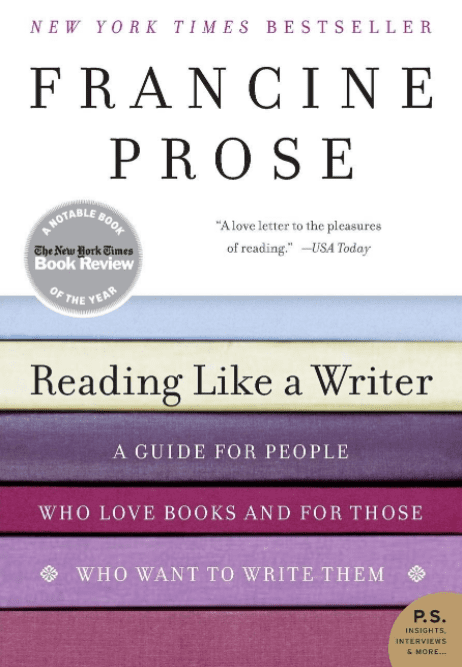
Through examples and literary analysis, Prose demonstrates how close reading can deepen one’s understanding of storytelling and language. It is a valuable resource for aspiring authors, as it emphasizes the significance of reading widely and critically to improve one’s writing.
“For any writer, the ability to look at a sentence and see what’s superfluous, what can be altered, revised, expanded, and, especially, cut, is essential.“
Related Reads:
Conclusion: Best Books on Writing
I realized late that writing is an art form that requires constant learning and growth. The books on writing I mentioned in this article are essential tools for aspiring writers. From Stephen King’s candid memoir to Annie Dillard’s poetic insights, these books offer a diverse range of perspectives and techniques.
If you are an aspiring writer and want that magical touch in your articles, you can take inspiration from these famous books to unlock your creative side. Or even if you are just a bookworm, reading these books can help you appreciate writing.


